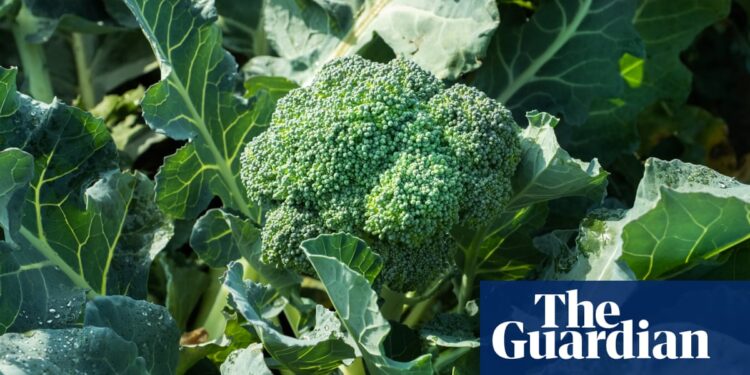Broccoli, cauliflower and other brassicas may be in short supply this spring as the mild autumn and winter has caused the crops to come up early, growers have said.
Any shortages will prolong the so-called “hungry gap”, which runs from April to early June, when very few crops are grown in the UK.
It will also be hard to supplement any vegetables with crops from the continent, as floods in key growing areas prevented many farmers from planting in time for a spring harvest.
Climate breakdown means this will become more frequent, according to the Met Office. It says: “Observations show a clear warming trend for average UK winter temperature, and this trend is projected to continue in the future due to human induced climate change. This doesn’t mean the UK will no longer see cold spells … however, cold spells are projected to become less frequent and less severe.”
Heavy rainfall, which can damage crops, is also becoming more frequent in the UK and across Europe because of climate breakdown.
Hannah Croft, an agronomist at the organic vegetable box company Riverford, said there would be “tight periods for broccoli supply later this spring”.
She added: “Our Spanish suppliers, who grow much of our winter broccoli, have faced setbacks due to heavy autumn rain, which caused quality issues and delayed planting for spring crops. This has pushed harvest schedules forward, meaning there’s a possibility of a gap in late spring.”
British cauliflower crops are suffering, she said: “UK cauliflowers have faced weather challenges including significant rainfall in autumn, which caused some losses in early crops, while mild temperatures brought winter cauliflowers ahead of schedule.”
Consumers can replace brassicas with spring greens and other cabbages, Brown said: “These crops are holding up well. Spring greens, protected under nets, are on track for harvest from January through April, and will take over as curly kales finish up.”
after newsletter promotion
Guy Barter, the chief horticulturist at the Royal Horticultural Society, was shocked to discover cauliflowers ready to harvest months early on his Surrey allotment. He said: “I think what happened here is that the plants went in at the usual time but grew mightily in the wet July and September and the very mild autumn, so their natural mechanism of timing flowering by chilling was overridden by their larger-than-usual size, hence flowering now rather than April.”
Slugs have been thriving in the wet weather, and munching on unprotected brassicas. Peter Adams, a horticulturist at RHS Rosemoor in north Devon, said that due to “the winter wet and local pigeon and slug populations”, all the cauliflower at the site had been destroyed.






